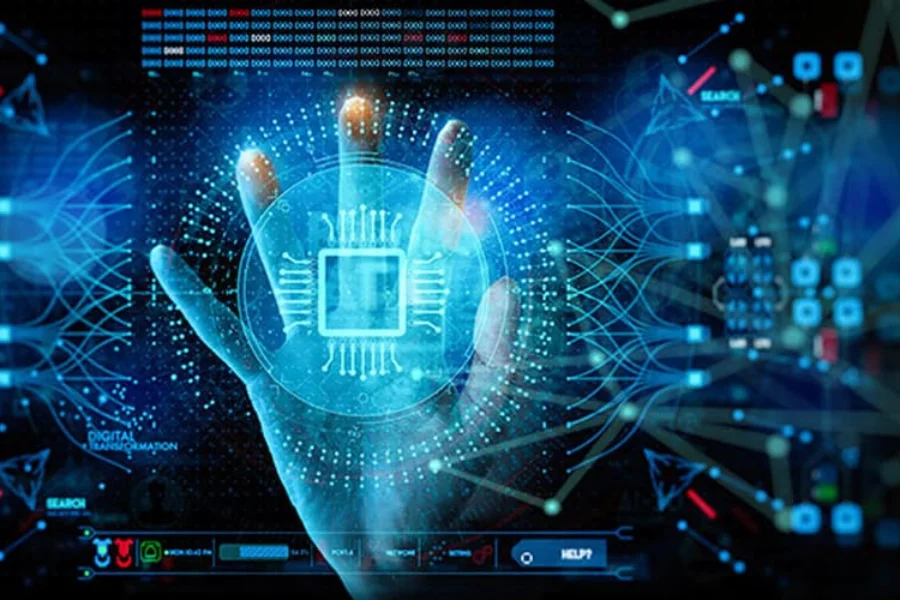The Future of Software: Trends and Innovations to Keep Your Business Ahead of the Game

Trends and Innovations | Mykaba
The world of software is constantly evolving, and businesses that want to stand out in today’s market need to keep up with the latest trends and innovations. From artificial intelligence to blockchain technology, there are countless tools and technologies that can help businesses gain a competitive advantage. In this article, we’ll explore some of the most exciting trends in the world of software, and examine how businesses can leverage these tools to stay ahead of the game.
Artificial intelligence and machine learning
Artificial intelligence (AI) and machine learning (ML) are two of the most transformative technologies of our time. AI refers to the ability of machines to perform tasks that typically require human intelligence, such as visual perception, speech recognition, decision-making, and language translation. ML is a subset of AI that involves the use of algorithms to enable machines to learn from data and improve their performance over time.
One of the most significant applications of AI and ML is in the field of predictive analytics. By analyzing large amounts of data, businesses can use AI and ML to make accurate predictions about future trends and behaviors. For example, a retail company can use AI and ML to predict which products will be popular during the upcoming holiday season, and adjust their inventory accordingly.
Another exciting area of AI and ML is in the development of virtual assistants and chatbots. These tools can be used to improve customer service and support, by allowing businesses to provide 24/7 assistance to their customers. Virtual assistants and chatbots can also be used to automate routine tasks, such as responding to customer inquiries or scheduling appointments.
Cloud-based software solutions
Cloud computing has revolutionized the way that businesses operate, by providing a flexible and scalable platform for software development and deployment. Cloud-based software solutions can be accessed from anywhere with an internet connection, and can be easily scaled up or down to meet the changing needs of a business.
One of the most significant benefits of cloud-based software solutions is the cost savings that they offer. By eliminating the need to purchase and maintain expensive hardware and software, businesses can save a significant amount of money on IT costs. Cloud-based software solutions also offer greater flexibility and agility, by allowing businesses to quickly and easily deploy new applications and services.
Another benefit of cloud-based software solutions is the enhanced security that they provide. By storing data in the cloud, businesses can ensure that their data is protected against physical disasters, such as fires or floods. Cloud-based software solutions also offer robust security features, such as encryption and multi-factor authentication, to protect against cyber threats.
Internet of Things (IoT) integration
The Internet of Things (IoT) refers to the network of devices, sensors, and objects that are connected to the internet, and can communicate with each other. IoT technology has the potential to transform many industries, by providing real-time insights and data that can be used to improve efficiency and productivity.
One of the most significant applications of IoT technology is in the field of predictive maintenance. By using sensors and data analytics, businesses can predict when equipment is likely to fail, and take proactive measures to prevent downtime and reduce maintenance costs. IoT technology can also be used to optimize supply chain operations, by providing real-time tracking and monitoring of shipments.
Another exciting application of IoT technology is in the development of smart cities. By integrating IoT devices and sensors into city infrastructure, cities can become more efficient and sustainable. For example, IoT technology can be used to optimize traffic flow, reduce energy consumption, and improve public safety.
Augmented and virtual reality
Augmented reality (AR) and virtual reality (VR) are two technologies that are rapidly gaining popularity in the world of software. AR refers to the use of digital information to enhance the physical world, while VR refers to the creation of a simulated environment that users can interact with.
One of the most significant applications of AR and VR is in the field of training and education. By using these technologies, businesses can provide immersive and interactive training experiences that are more engaging and effective than traditional training methods. AR and VR can also be used to create virtual product demonstrations and simulations, which can help businesses to showcase their products in a more engaging way.
Another exciting application of AR and VR is in the field of marketing and advertising. By using these technologies, businesses can create interactive and immersive campaigns that can capture the attention of consumers. AR and VR can also be used to create virtual showrooms and retail experiences, which can provide a more engaging and personalized shopping experience for customers.
Blockchain technology
Blockchain technology is a distributed ledger system that allows for secure and transparent transactions. One of the most significant applications of blockchain technology is in the field of finance, where it is being used to create decentralized payment systems and digital currencies.
Another exciting application of blockchain technology is in the field of supply chain management. By using blockchain technology, businesses can create a secure and transparent record of all transactions and movements within the supply chain. This can help to improve efficiency and reduce costs, by providing real-time tracking and monitoring of shipments.
Blockchain technology can also be used to create secure and transparent voting systems, by allowing for anonymous and tamper-proof voting records. This can help to improve the integrity of elections and increase voter participation.
Low-code development platforms
Low-code development platforms are tools that allow users to create software applications with minimal coding knowledge. These platforms typically provide drag-and-drop interfaces and pre-built components, which can help to speed up the development process and reduce costs.
One of the most significant benefits of low-code development platforms is the increased speed of development. By eliminating the need for complex coding, businesses can create software applications more quickly and efficiently. Low-code development platforms also offer greater flexibility, by allowing users to easily modify and update their applications as needed.
Another benefit of low-code development platforms is the reduced cost of development. By eliminating the need for highly skilled developers, businesses can save a significant amount of money on development costs. Low-code development platforms also offer greater scalability, by allowing businesses to easily scale their applications as their needs change.
Voice-activated technology
Voice-activated technology, such as Amazon Alexa and Google Assistant, is rapidly gaining popularity in the world of software. These tools can be used to automate routine tasks, such as setting reminders or playing music, and can also be used to control smart home devices.
One of the most significant applications of voice-activated technology is in the field of customer service. By using voice-activated assistants, businesses can provide 24/7 assistance to their customers, without the need for human intervention. Voice-activated technology can also be used to improve accessibility, by providing assistance to people with disabilities.
Another exciting application of voice-activated technology is in the field of healthcare. By using voice-activated assistants, healthcare providers can provide remote assistance to patients, and monitor their health conditions in real-time. Voice-activated technology can also be used to provide medication reminders and other healthcare-related information.
Cybersecurity advancements
Cybersecurity is one of the most critical issues facing businesses today, and there are many exciting advancements in this field that can help to improve security and protect against cyber threats. One of the most significant advancements is in the field of artificial intelligence and machine learning, which can be used to detect and prevent cyber attacks.
Another exciting advancement in cybersecurity is the use of blockchain technology. By creating a tamper-proof and transparent record of all transactions, blockchain technology can help to prevent fraud and protect against cyber attacks. Cybersecurity advancements can also include the use of biometric authentication, such as fingerprint or facial recognition, to provide added security for sensitive data and transactions.
The impact of software trends on businesses
The trends and innovations discussed in this article have the potential to transform many industries, and businesses that are able to leverage these tools effectively will gain a significant competitive advantage. However, it is important to note that implementing these tools requires careful planning and execution.
Businesses must carefully consider their goals and objectives, and identify the tools and technologies that are most relevant to their needs. They must also ensure that they have the necessary resources and expertise to implement these tools effectively, and must be prepared to adapt and evolve as the technology landscape continues to evolve.
Conclusion: Preparing for the future of software
The future of software is full of exciting possibilities, and businesses that are able to stay ahead of the game will reap the rewards. By leveraging the latest trends and innovations, businesses can improve efficiency, reduce costs, and gain a competitive advantage. However, success in the world of software requires careful planning and execution, and businesses must be prepared to adapt and evolve as the technology landscape continues to evolve. So, whether you are a start-up looking to disrupt the market or a seasoned enterprise seeking to stay relevant, there is no doubt that the future of software will play a critical role in your success.









